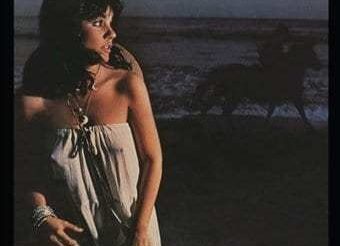Create at the Intersection of Experience and Innovation (Or: If You Never Invent Yourself, Reinvention Won’t Be Necessary)


Linda Ronstadt “Hasten Down the Wind” album cover
In the recently released documentary Linda Ronstadt: The Sound of My Voice, country music legend Dolly Parton comments that “Linda could literally sing everything.” The film cuts to Ronstadt — who famously sang folk, pop, rock, country, R&B, Cajun, operetta, the Great American Songbook and traditional Mexican music in a long and successful career — as she dryly remarks, “People would think I was trying to remake myself, but I never invented myself in the first place.”
There is a great deal of wisdom in those few words.
Today we hear about reinventing yourself for the information age. Creating your new personal brand. Unmooring yourself from your past to create a new you.
Most of that reinvention messaging is . . . what’s the technical term again? Ah yes. Hogwash.
The assumption that you need to jettison the past as if it never existed and doesn’t matter is central to the modern idea of reinvention. Many writers have commented that the American myth is built upon jettisoning the old in order to glorify the new. Similarly, the concept of American exceptionalism is constructed on the idea that we created something new out of whole cloth; a “new history” if you will. These myths affect how we see places as well as people. We tear down old buildings to replace them with new structures that do not have the beauty, durability, or connections over time that help create our memories and identity. And as people, we seek to avoid old age at all costs. (At least we do so mentally, if — like everyone else — you can’t figure out a way to stay alive and not add a year to your life every 365 days.)
Again, I say, hogwash.
Ronstadt’s own story is instructive. She was a young woman of 18 with a tremendous gift — her voice and a keen musical ear — when she moved to L.A. in 1964 as bands such as The Byrds were changing the nature of folk, country, and rock music. Between that year and 2011, when Parkinson’s disease forced her from her chosen career, Ronstadt built onher past to forge an eclectic and wildly successful legacy in the music business. Between her grandfather (leader of a large traditional Mexican band), her father (who sang frequently in a beautiful tenor voice and listened to the Met every Saturday with his wife and daughter), her mother (a lover of Gilbert and Sullivan operettas), and her sister (a Hank Williams fan), Ronstadt absorbed and integrated an incredibly wide and diverse range of musical styles.
She then used the folk and rock influences to craft a period in her career when she was playing sold out stadiums across the world; appeared simultaneously on the rock, country, and R&B charts (a first for any artist); and had posters gracing many a college dorm room.* But rather than continue doing the same thing forever,** she drew on her mother’s love of operetta to bring The Pirates of Penzance to a new generation of fans. Her own affection for the Great American Songbook led to the recording of an album with Nelson Riddle, the legendary arranger who helped craft the sound of that era. The traditional country music she heard growing up in the Southwest became the base for the Trio albums, in which she collaborated with Parton and Emmylou Harris. Similarly, her last studio album was a beautiful, yet underappreciated, series of duets with Cajun musician Ann Savoy. Finally, her Mexican grandfather’s heritage was the inspiration for Canciones de Mi Padre, which became the biggest-selling Spanish-language album ever. Notice that every one of those forays into new musical territories for one of the world’s most successful country-rockers came from her past. It didn’t require reinvention.
What Ronstadt and millions of others have done is create at the intersection of experience and innovation. Marc Freedman has written about the “dangerous myth of reinvention” because he sees the traditional story as detrimental to real midlife renewal. I would add that if we “invent” and then “reinvent” ourselves, we are in danger of never working from our true core.
Authenticity is one reason why I’ve always been fascinated with Linda Ronstadt. Through her autobiography and this 2019 documentary***, new generations may come to know this artist with the wide musical tastes, the chops to sing well in disparate styles, sharp mind, and — relevant to this day and age — strong political positions. One of the more fascinating clips in the film has an interviewer suggesting that Ronstadt’s political stances are controversial, after he was taken by surprise with her response to a question. She shoots back, “They’re not. Who likes nuclear war?”
No need for reinvention here. While clothes, haircuts, boyfriends, and even musical styles changed over time, that voice — the authentic self — is clear, centered by a nurturing past, and was not invented by a need for a personal brand or by a record company marketer.
Authenticity is called for when Freedman encourages us to “think less about reinvention and more about forging ahead in ways that draw on our accumulated knowledge — what former Alvin Ailey star Elizabeth Roxas-Dobrish describes as ‘all the things that life has put into you.’”
Have a good week.
DJB
*Guilty
**How embarrassing is it to see that the Rolling Stones are going back out on tour to play all the same songs again — after it was originally postponed so Mick Jagger could have heart surgery!
***While this is not a review, the film is terrific! Four stars. But you already know that I’m a fan.
Installment #5 in the Gap Year Chronicles
